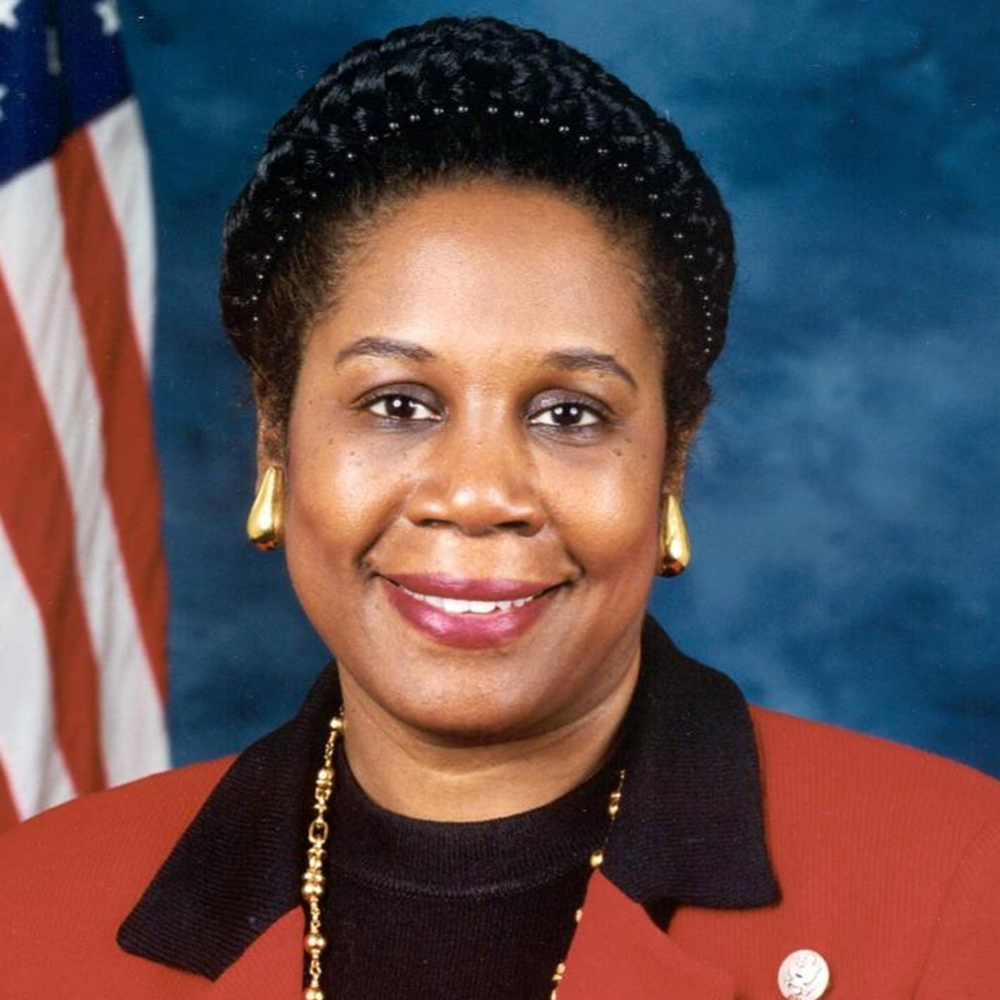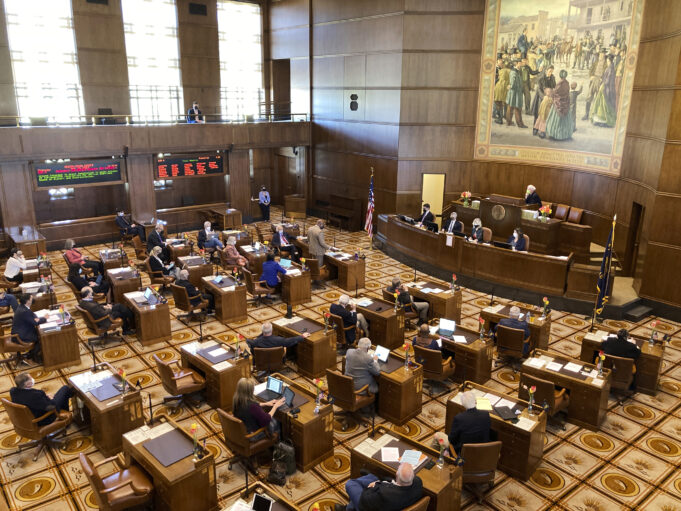WASHINGTON—Civic society and Christian leaders joined Rep. Barbara Lee (D-Calif.) and Rep. Sheila Jackson Lee (D-Texas) at a National Press Club press conference where they urged Congress to pass H.R. 40, the Commission to Study and Develop Reparations Proposals for African Americans Act.
“Religious and civic leaders from across the country are actively working in their spheres of influence to move communities towards a time of radical truth-telling and to advance the repair of what race broke in our nation,” said Lisa Sharon Harper, a theologian, author of “Fortune,” and founder and president of Freedomroad, LLC. “The nation’s attention is rightfully focused on the plight of Ukraine today.
Vladimir Putin is attempting to resurrect the age of colonization in our world. But, if the United States of America truly wants to defeat Putin, then we will have to finish the work of decolonization on our own soil by offering reparations and engaging in the process of radical truth-telling,” she said.
“Today we are here to call the church and the nation to confess and repent, to engage in radical truth-telling and reparations so the wound can be healed,” added Ms. Harper at the March 2 gathering.

She explained the press conference followed a legislative push for H.R. 40 with the group meeting with officials at the White House on February 22 which kicked off a month of action. They urged fellow Christians to call members of Congress to coax them to support H.R. 40.
The late Congressman John Conyers of Michigan originally introduced H.R. 40 in 1989. The bill continues to gain momentum as the U.S. struggles to come to terms with the racial and social justice reckoning triggered by George Floyd’s murder in May 2020. Last April, the House Judiciary Committee advanced the bill after a vote then the committee sent it to the full House for passage. H.R. 40 faces an uncertain future in the U.S. Senate.
Two members of Congress instrumental in pushing H.R. 40 and the Reparations effort forward are Reps. Sheila Jackson Lee and Barbara Lee.
On February 17 last year, Rep. Sheila Jackson-Lee chaired a House Committee hearing on H.R. 40 that was allowed for a substantive discussion about reparations and the movement towards the development and implementation of a range of proposals designed to repair, compensate, and heal Black people in this country.
But the bill faces opposition from Republicans in both the House and Senate, as more than a few are reluctant to even discuss much less pass any piece of legislation dealing with Reparations. But that hasn’t stopped Reparations advocates from continuing to pressure lawmakers and educate the public about the moral imperative of the United States to repair, compensate and heal African Americans.
“I thank the faith community for recognizing the moral imperative to fight for racial justice. We know this is a battle for the soul of our nation,” Rep. Lee said. “I worked with Dr. Ron Daniels to look at each and every single challenge we face through the lens of racial equity and racial justice. Given that, we have to understand how structural racism continues in the Black community. And how 400 years of slavery continues to manifest itself today. So, it’s time for our nation to collectively tell the truth about our history and to repair the damage,” she added.

That mission becomes even more vital at a time when there is an active effort by certain parts of White America to erase the history, contributions and presence of African Americans from history books, schools and libraries, she continued.
Rep. Jackson-Lee told viewers and other participants: “It’s imperative we pass H.R. 40 with your help.”
“On this Day of Faith, Repentance and Confessions, we are gathered together in unity, because out of that confession and acknowledgement comes remorse and repentance,” she continued. “We’re not far away from the basis of why this is. We were four million. Our bodies created the Trans-Atlantic Slave Trade and the economies for Europe and United States. Four thousand of us were hung and two days ago, they passed Emmett Till Anti-Lynching Bill,” she said.
Rep. Jackson Lee said strong support has come from members of Asian American communities. Her comments about Asian support refers to a virtual townhall meeting last August held by NAARC (National African American Reparations Commission) where generations of Japanese American community organizers spoke alongside leaders from the Black Reparations movement at a meeting titled, “Reparations Then, Reparations Now!”
The meeting coincided with the 40th anniversary of the Commission on Wartime Relocation and Internment of Civilians hearings, which marked a crucial fulcrum in the Japanese American redress movement.

Social justice groups such as Nikkei Progressives and Nikkei for Civil Rights and Redress have joined a burgeoning coalition of organizations pushing for the passage of H.R. 40. Japanese Americans have been key proponents of H.R. 40, organizing letter-writing campaigns, webinars, phone-banking sessions and town hall meetings that have been “essential” to the effort, said Kenniss Henry, co-chair of the National Coalition of Blacks for Reparations in America’s national legislative commission.
Ms. Henry, a longtime reparations advocate, was clear about the United States being held accountable and responsible. “The federal government has never issued its own comprehensive study on the impacts of its racist institutions, policies, and practices, including slavery. Nor have they designed adequate repair proposals to address those impacts,” she said. “An H.R. 40 commission would do this and through its work issue the public acknowledgment of the government’s wrongs with recommendations about how to rectify them.”
Paul Zeitz said he was excited as he emphasized his commitment to the movement in which he and his colleagues are involved. He is executive director of Build A Movement 2022 and co-leader of #breathewithme Revolution where he co-convenes the U.S. National Truth, Racial Healing, and Transformation (TRHT) Movement. “This medicine for the soul of our nation will allow us to embrace our common humanity, so together we can solve the existential threats we are facing,” he said.
“For too long, the White majority, of which I am a part, has minimized the multi-generational financial penalty that slavery and Jim Crow exacted from Black Americans,” said Rev. Rob. Schenck, founder and president of The Dietrich Bonhoeffer Institute, Washington, D.C., and Administrative Bishop of the Methodist Evangelical Church, USA. “We must stop dismissing, excusing, rationalizing, and justifying the long list of injuries done to those of African descent, including economic injuries,” he said.
“It’s past time to pay the debt owed, to make good on welched promises, to make the progeny of victims whole.”













